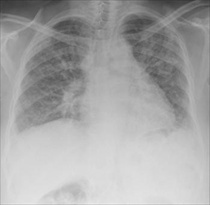New microarray-on-a-chip test for cystic fibrosis
 Astra Biotech GmbH is in the pre-launch phase
of its newly developed test, based on microarray technology, for rapid
simultaneous detection of 25 of the most common mutations causing cystic
fibrosis in pan-European populations. This initiative supports Astra Biotech's
aim of facilitating early diagnosis of individuals' risk factors through
innovative assays. In this way long-term effects of a disease can be minimised
and patient healthcare standards can be improved.
Astra Biotech GmbH is in the pre-launch phase
of its newly developed test, based on microarray technology, for rapid
simultaneous detection of 25 of the most common mutations causing cystic
fibrosis in pan-European populations. This initiative supports Astra Biotech's
aim of facilitating early diagnosis of individuals' risk factors through
innovative assays. In this way long-term effects of a disease can be minimised
and patient healthcare standards can be improved.Cystic fibrosis (CF) is a life-threatening recessive genetic disease which causes severe malfunctioning of the exocrine glands, respiratory system and gastrointestinal tract. Diagnosis frequently takes place only once symptoms are already obvious, thereby delaying disease management and risking irreversible damage to the vital organs. The median age of survival is around 30 years, with death most commonly due to cardio-respiratory complications.
At present, CF is routinely diagnosed by newborn screening using a blood test and a sweat test, though these can lead to both false positive and false negative results. For example, carriers of a single mutated copy of the relevant CFTR (cystic fibrosis transmembrane conductance regulator) gene, who will not develop the disease, may test positive; while individuals with mild mutations in both copies of the CFTR gene, who will develop CF, may have a near-normal sweat test.
Astra Biotech has developed a platform providing a much more reliable CF diagnosis, based on best-practice guidelines[1]for molecular genetic diagnosis of cystic fibrosis and CFTR-related disorders. Over 1,500 mutations can contribute to development of these disorders; 4-5 per cent of Caucasian populations carry one or more CF alleles. Using microarray technology and a microchip designed according to the newest clinical genetic data, the Astra Biotech test enables rapid simultaneous detection of a panel of 25 mutations in the CFTR gene. These include the most common mutations identified as leading to CF disease in Western European populations, together with 9 mutations most frequently found in Eastern European ethnic groups.
The new cystic fibrosis microarray test ensures reliable detection with high specificity and sensitivity. Applications include CF newborn screening, prenatal diagnostics, carrier testing, and testing of couples with a personal or close family history of CF as recommended by the World Health Organization.
[1]Dequeker E., et al. ‘Best practice guidelines for molecular genetic diagnosis of cystic fibrosis and CFTR-related disorders - updated European recommendations'. Eur J Hum Genet. 2009, Jan:17(1):51-65.
For further information click here
